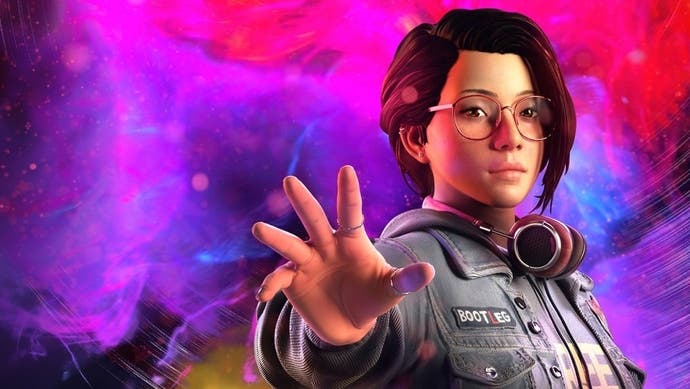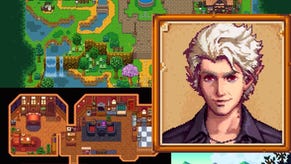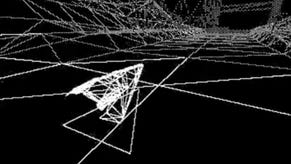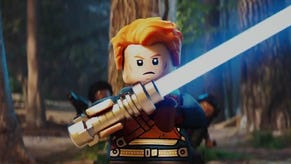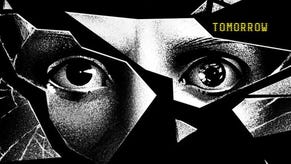Life is Strange studio Deck Nine accused of toxic workplace culture in new report
Where hate speech, crunch, bullying, and abusive leadership allowed to fester.
A new investigation into developer Deck Nine - best known as the current steward of Life is Strange, a series celebrated for its diversity and inclusivity - has painted a picture of a studio where toxicity, hate speech, harassment, crunch, bullying, and abusive leadership has been able to fester as a result inaction from senior management.
The lengthy report from IGN's Rebekah Valentine, based on testimony from over a dozen current and former employees across several departments at Deck Nine, makes a number of eye-opening allegations, many highlighting a seeming disconnect between the inclusive values that have made Life is Strange such a beloved hit and those of the studio.
IGN's sources highlight instances of sexual harassment, bullying, transphobia, and other toxicity at Deck Nine, which senior management reportedly let remain "unaddressed for months on end". These include harassment and aggression from an unnamed senior programmer towards female staff - with management said to have first responded to employee complaints by moving his team's desks further away from other departments so his yelling couldn't be heard, rather than take action to address his behaviour directly. The staff member in question was, however, eventually let go.
Similarly, Deck Nine's narrative team - described as one of the "most diverse" at the studio - is said to have faced sexism, harassment, bullying, transphobia, microaggressions, alienation, and more from the wider company, and particular complaints are levied at former Deck Nine chief creative officer Zak Garriss. These range from claims of 'crossing the personal boundaries' of female staff - which Garris rebuts in a lengthy response to IGN - and instances of him "lashing out against those who disagreed with him at work", especially those "fighting for more thoughtful, authentic, or sensitive portrayals of diverse characters".
Garriss is said to have "reprimanded" staff who inquired about the relatively late removal of a transgender character in Life is Strange: True Colors, and is accused of being stubbornly unwilling to listen to staff who raised concerns around "problematic" aspects of the True Colors script. These reportedly included an eventually removed scene in which main character Alex's drink is spiked at a bar, a sequence a number of staff felt could be "unintentionally triggering" for some players, and an ultimately ditched late-game twist some on the team saw as a "problematic portrayal of migrant workers". Garriss reportedly accused those who pushed against his work and asked for change of "getting too hung up on 'political ideologies'".
IGN reports Garriss later "distanced himself" from the narrative team, working with another lead to "make most of the story decisions, rewriting work from other writers without allowing them the opportunity to give feedback, even on stories centring marginalised characters."
In a response to IGN's article, Garriss shared a statement claiming, "In all of my career, I have never worked with writers who were as creatively inflexible, antagonistic toward difference, or less inclined to listen or compromise as a select few of this group." Garriss also claims the narrative team's work on True Colors was "so poor, the game was under real threat of cancellation when I returned" and that he later attempted to reduce the "influence" of certain team members because "their conduct became unprofessional, more antagonistic, and accusatory toward me of the toxicity that, from the perspective of many people in the studio, was in actuality a result of their behaviour." IGN's full report features an extensive rebuttal by Garris covering each of the story's other claims.
Garriss would eventually quit Deck Nine voluntarily, but not before employees flagged his behaviour to management. However, Deck Nine's leadership is once again said to have been slow to take complaints at the studio seriously, with management later attempting to bring Garriss back to fix a pitch on another project - a decision that saw multiple writers hand in their resignations.
IGN's report highlights other alleged instance of troubling behaviour at the studio, including claims of leadership's glacial response to the discovery by employees last year that a member of staff appeared to be covertly inserting nazi slogans, memes, and other problematic imagery into Deck Nine's new Life is Strange game. It's alleged the assets remained unchanged "for months" despite complaints from employees, and that an eventual investigation by management into the incident determined it was "not an intentional action." However, the studio later said it would be hiring a law firm to investigate the incident further. Additionally, CEO Mark Lyons pledged to implement an anti-hate speech policy and annual training around hate speech - but it's claimed neither has yet occurred.
Deck Nine isn't the only organisation to come under fire in IGN's report; Life is Strange publisher Square Enix is also accused of some eye-opening behaviour. Contacts at Square Enix London, who Deck Nine worked with directly on Life is Strange are, for instance, described as "bullies" who "put a lot of pressure on [Deck Nine's] people, so that toxicity started to bleed into our environment too." It's also claimed Square flatly forbade Deck Nine from commenting on True Colors protagonist Alex's bisexuality ahead of release, and only changed its mind once early press reviews were positive on that aspect of the game. Staff IGN interviewed also claim Square "seemed oddly reluctant or outright hostile to the diverse themes and ideas that Life is Strange fans love" during development, and that Square told multiple developers it didn't want the Life is Strange series to be thought of as a "gay game".
While Square Enix reportedly declined to comment on IGN's article, Deck Nine shared a statement in response to the story's allegations, which is printed in full below. IGN's full report is a lengthy one and well worth a read.
Deck Nine's full response to IGN's story
Studio:
At Deck Nine, telling diverse and deeply human stories is part of our DNA and it’s every creative individual at the studio who helps make them compelling, relatable, and meaningful for our dedicated community.
We are a small, diverse, and incredibly talented team, which is reflected in the rich characters and intimate storylines of the games we make. Our hiring and promotion practices prioritize a diverse culture and workforce because of the experiences we are creating—and because it’s the right thing to do. We are proud to be a studio that employs a diverse team that goes above and beyond industry norms.
Deck Nine is an independently owned studio, and we strive to compensate all our employees fairly. We recently made salary adjustments as we shifted to remote work and continue to offer abundant opportunities for upward mobility to all employees.
We, as with countless other studios in the games industry, are constantly working to build in better practices throughout development to avoid crunch.
Employee Conduct:
We place the utmost importance on the welfare of every employee at Deck Nine. We have strict conduct policies in place, and as soon as allegations or issues are reported to HR, they are confidentially investigated, assessed, and addressed with the parties involved as quickly and effectively as possible. It is always our intention to maintain a positive, sustainable, and successful studio by putting our people first.
We have always conducted thorough internal investigations if any issues arise, and when a situation warrants it, we will bring in external parties to consult with us. We will soon be integrating new tools into our development pipeline to ensure all terms, imagery, or symbols created in our games - including any and all background content - receive additional vetting for potentially offensive or hateful expressions and are properly flagged and assessed to avoid inadvertent inclusion. We are also rolling out formal anti-hate speech training and processes to better inform and give team members actionable resources to remain vigilant as a collective studio.
Collaborating with Partners:
Storytelling is a collaborative process, and we work closely with all of our partners throughout development to deliver a narrative experience true to the pillars of a product that we are all proud of. As is often the case in the creative process, some ideas make the final cut, and some do not. We remain committed to championing diversity and telling stories from historically underrepresented groups in games.
